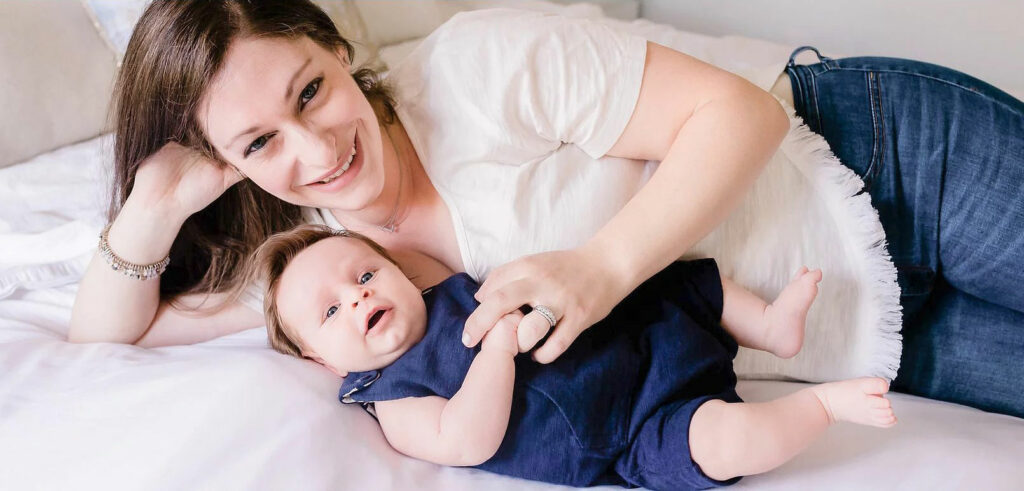
BLOG
Any parent who has googled baby sleep has surely come across the suggestion that feeding to sleep is a bad habit, a crutch, a negative association that should be avoided at all costs. As an attachment focused sleep and parent coach, I routinely support my clients to improve their family’s sleep situation while respecting the biological norm of feeding to sleep.
Breastfeeding has been a part of human evolution for millions of years, and breastfeeding to sleep is a natural part of this process. In fact, research has shown that babies who are breastfed to sleep have better sleep patterns and are less likely to develop sleep problems later in life 1.
Breastfeeding to sleep also has many benefits for both mom and baby. For example, breastmilk contains hormones such as melatonin, which helps to regulate the sleep-wake cycle. This means that breastfed babies often fall asleep more easily and stay asleep for longer periods of time 2. Breastfeeding also releases oxytocin, a hormone that helps to relax both mom and baby, making it easier for them to fall asleep.
In addition to these benefits, research has shown that breastfeeding to sleep can also help to reduce the risk of sudden infant death syndrome (SIDS). A study published in the journal Pediatrics found that infants who were breastfed to sleep had a lower risk of SIDS than those who were not 3.
It is also important to note that feeding a baby to sleep does not create bad habits or spoil the baby. Babies have a natural need for food and comfort, and feeding them to sleep satisfies both of these needs. In fact, research has shown that babies who are fed to sleep are more secure and have better emotional well-being than those who are not 4.
Ultimately, the choice of whether or not to feed to sleep comes down to what works best for your family’s unique needs. If feeding to sleep is causing additional stress for any reason, we can work on shifting the association to something that works better for both you and your baby. And, if feeding to sleep is currently working for you both, don’t be afraid to continue for as long as it’s still working.
Struggling to find sleep solutions to meet your family’s needs? Let’s chat!
References:
